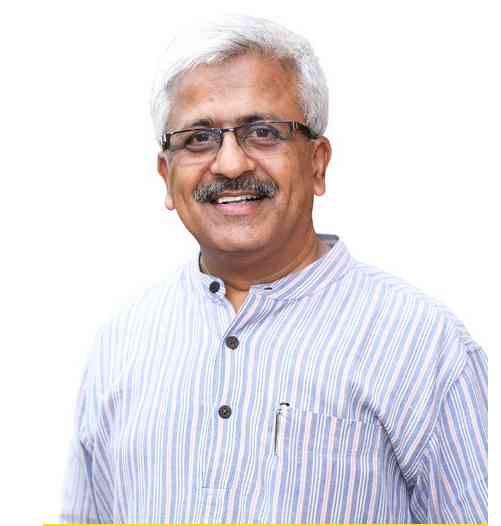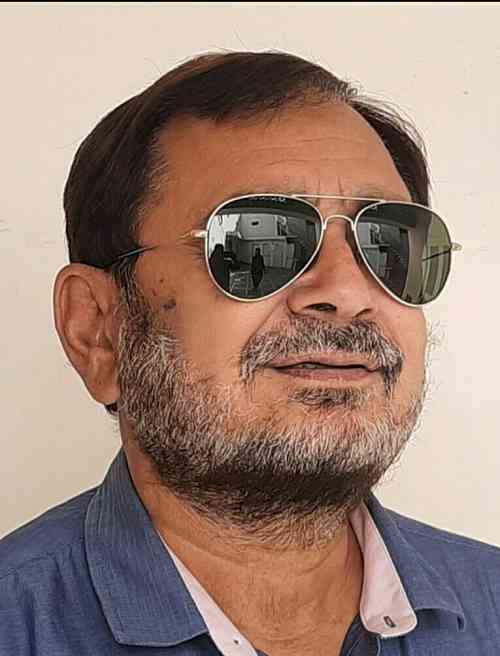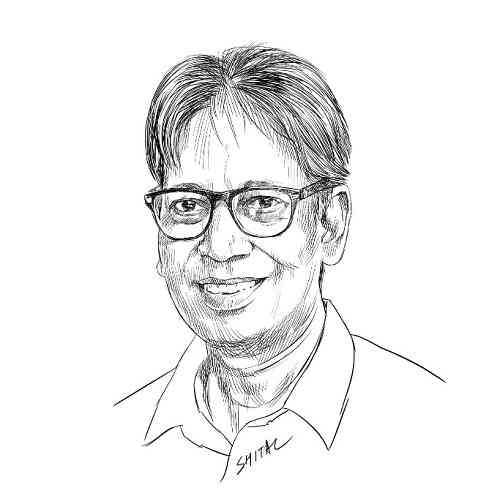From “karmachari” to “karmayogi”: PM Modi’s blueprint to future-proof governance

By Dr R Balasubramaniam
India is attempting something unprecedented in public administration. It is changing not just how officials are trained but why they serve. Mission Karmayogi—the National Program for Civil Services Capacity Building—is the engine of that shift, and it bears the visionary imprint of Prime Minister Narendra Modi. With more than 25 years at the helm of government and over five decades in public life, Modi brings an operator’s feel for systems, a reformer’s impatience with ossified habits, and a clear North Star - a citizen-first, Viksit Bharat.
What distinguishes Mission Karmayogi is that it is not a cosmetic HR update. It is a values-driven transformative redesign of India’s civil services with focus on performance. The program codifies three decisive transitions: the first transition is a change in mindset of government officials from seeing themselves as karmacharis to considering themselves as karmayogis. The second transition is a change in the workplace, from assigning individual responsibility for performance, to diagnosing and removing systemic performance constraints. The third transition is moving the Public HR Management system and the corresponding capacity building apparatus from being rule-based to becoming role-based. That architecture emerged explicitly from Modi’s visionary framing of what twenty-first century governance demands.
This is the product of lived leadership. As Chief Minister and then Prime Minister, Modi pushed a whole-of-government culture—breaking silos, insisting ministers’ debate across domains, and elevating systems solutions over file-pushing. That ethos showed during the pandemic, when “Team India” across levels of government, industry, civil society, and citizen volunteers moved as a partnership state. The same collaborative muscle is what reforms like GeM and GatiShakti now institutionalise.
He also translated leadership habits into structures. Chintan Shivirs—residential, hierarchy-flattening brainstorming sessions—were seeded in Gujarat and are now part of the Union government’s playbook. His insistence on continuous learning is personal. Apart from constantly expanding his own knowledge and skills, he is also known to check on whether PMO officers use the iGOT digital platform. And he is very inclusive in how he treats institutional memory. Soon after taking office, he urged ministers to learn from their assistants and section officers who had “lived” the system for decades. That is what culture change looks like in practice.
On the ground, the reform’s backbone is technology used with purpose. The iGOT-Karmayogi platform is a comprehensive, anytime-anywhere learning ecosystem with more than 3,000 self-paced courses that is accessible to all and democratizes learning. It links learning to HR functions like competency mapping, career planning, and mentorship—moving the state from performance policing to enabling potential. It is already powering scale. Hundreds of thousands of officials have been trained on new legal frameworks; lakhs of police, doctors and other personnel across the country are strengthening citizen interaction and undergoing programs on Sevabhaav; and large cohorts are getting certified in emerging technologies like AI and IoT—evidence that the “tech-friendly” preference of the Prime Minister has been translated into institutional muscle.
Just as important is the philosophical core. Mission Karmayogi braids ancient civilisational wisdom with modern statecraft—embedding pledges like Vikas (development), Garv (pride), Kartavya (duty), and Ekta (unity), alongside personal virtues (gunas) such as Svadhyay (self-reflection), Sahakaryata (collaboration), Rajyakarma (Statecraft) and Svadharma (focus on citizens). This is not nostalgia; it is a practical ethic for a high-tech age, ensuring competence is anchored in character.
Citizen-centricity—Jan Bhagidari—is the other pillar. PM Modi has repeatedly emphasises that citizens must sit at the centre of every public decision; that is his mantra for governance. In practice, citizen engagement becomes a two-way compact where people have a stake in policy and delivery, and officials’ re-tool to serve the last citizen at the last mile. Mission Karmayogi is the state’s instrument to build the mindset and methods for this compact.
Atmanirbharata—self-reliance—complements this. It is not insularity; it is capability and confidence, powered by openness and global competitiveness. That lens runs through the capacity-building push and the widening embrace of platforms like MyGov that make the citizen a co-creator, not a passive recipient. The narrative is unapologetically rooted in India’s civilisational ethos— while preparing institutions to thrive in the AI era.
The program’s institutional architecture reflects PM Modi’s pragmatism: Prime Minister headed Human Resource Council for top-level steering; a Cabinet Secretariat unit for coordination; the Capacity Building Commission (CBC) as custodian and standards-setter; and an SPV, Karmayogi Bharat, to drive the digital backbone and marketplace. By design, it is collaborative, auditable, and outcome-oriented—a governance stack fit for a “work-from-anywhere” state.
Crucially, India is not hoarding what it learns. In the spirit of Vasudhaiva Kutumbakam, the country is preparing to share knowledge, experience, and tools it is building as an exemplar in public administration. That matters for the Global South, where states face similar capability constraints amid technological disruption. Mauritius has already been offered support in this direction—an early sign that Mission Karmayogi could seed a community of practice across developing democracies.
Put simply, Mission Karmayogi turns a visionary idea into a system. It takes PM Modi’s long arc of governance—his instinct to break silos, his comfort with technology, his respect for institutional memory, and his moral vocabulary—and converts it into a repeatable operating model: role-based HR; continuous, digital learning; citizen partnership; and a civilisationally grounded ethic. That is how you future-proof a state.
If India stays the course, the dividends will be felt not just in faster files and tidier org charts but in trust. Citizens experiencing a government that listens, learns, and delivers. That is the heart of PM Modi’s wager. And it is why Mission Karmayogi, more than any single administrative reform of recent decades, deserves to be seen for what it is—a generational investment in the people who serve the people, designed by a leader who has spent his life doing just that.
(Author Dr R Balasubramaniam is the Member-HR of the Capacity Building Commission, Govt of India. )
Views are personal



 City Air News
City Air News 








